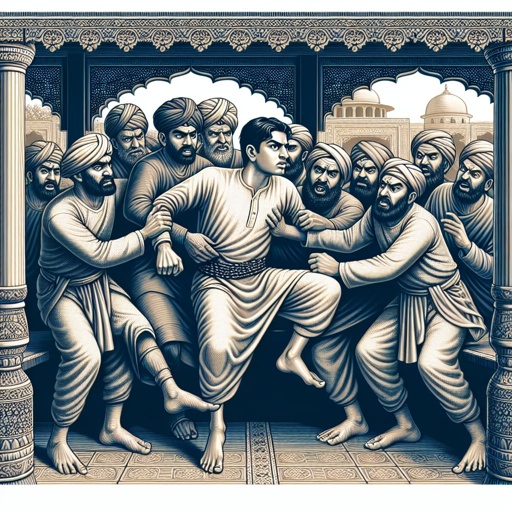Acts 26 Artwork
"Then Agrippa said unto Paul, Thou art permitted to speak for thyself. Then Paul stretched forth the hand, and answered for himself:" - Acts 26:1
Explore Acts 26 through paintings, pictures, drawings, digital art, illustrations, wallpapers, photos, prints & more.

Acts 27:26 - "Howbeit we must be cast upon a certain island."

Acts 26:27 - "King Agrippa, believest thou the prophets? I know that thou believest."

Acts 26:19 - "Whereupon, O king Agrippa, I was not disobedient unto the heavenly vision:"

Acts 23:26 - "Claudius Lysias unto the most excellent governor Felix sendeth greeting."

Acts 26:28 - "Then Agrippa said unto Paul, Almost thou persuadest me to be a Christian."

Acts 26:21 - "For these causes the Jews caught me in the temple, and went about to kill me."

Acts 15:26 - "Men that have hazarded their lives for the name of our Lord Jesus Christ."

Acts 26:12 - "Whereupon as I went to Damascus with authority and commission from the chief priests,"

Acts 26:8 - "Why should it be thought a thing incredible with you, that God should raise the dead?"

Acts 26:26 - "For the king knoweth of these things, before whom also I speak freely: for I am persuaded that none of these things are hidden from him; for this thing was not done in a corner."

Acts 1:26 - "And they gave forth their lots; and the lot fell upon Matthias; and he was numbered with the eleven apostles."

Acts 26:6 - "And now I stand and am judged for the hope of the promise made of God unto our fathers:"

Acts 26:30 - "And when he had thus spoken, the king rose up, and the governor, and Bernice, and they that sat with them:"

Acts 10:26 - "But Peter took him up, saying, Stand up; I myself also am a man."

2 Chronicles 35:26 - "Now the rest of the acts of Josiah, and his goodness, according to that which was written in the law of the LORD,"

Acts 26:17 - "Delivering thee from the people, and from the Gentiles, unto whom now I send thee,"

Acts 4:26 - "The kings of the earth stood up, and the rulers were gathered together against the Lord, and against his Christ."

Acts 26:25 - "But he said, I am not mad, most noble Festus; but speak forth the words of truth and soberness."

2 Chronicles 25:26 - "Now the rest of the acts of Amaziah, first and last, behold, are they not written in the book of the kings of Judah and Israel?"

Acts 26:9 - "I verily thought with myself, that I ought to do many things contrary to the name of Jesus of Nazareth."

Acts 20:26 - "Wherefore I take you to record this day, that I am pure from the blood of all men."

Acts 14:26 - "And thence sailed to Antioch, from whence they had been recommended to the grace of God for the work which they fulfilled."

2 Kings 15:26 - "And the rest of the acts of Pekahiah, and all that he did, behold, they are written in the book of the chronicles of the kings of Israel."

2 Chronicles 26:22 - "¶ Now the rest of the acts of Uzziah, first and last, did Isaiah the prophet, the son of Amoz, write."

Psalms 26:10 - "In whose hands is mischief, and their right hand is full of bribes."

Acts 26:15 - "And I said, Who art thou, Lord? And he said, I am Jesus whom thou persecutest."

Acts 5:26 - "Then went the captain with the officers, and brought them without violence: for they feared the people, lest they should have been stoned."

Acts 13:26 - "Men and brethren, children of the stock of Abraham, and whosoever among you feareth God, to you is the word of this salvation sent."

Acts 26:31 - "And when they were gone aside, they talked between themselves, saying, This man doeth nothing worthy of death or of bonds."

Acts 26:32 - "Then said Agrippa unto Festus, This man might have been set at liberty, if he had not appealed unto Caesar."